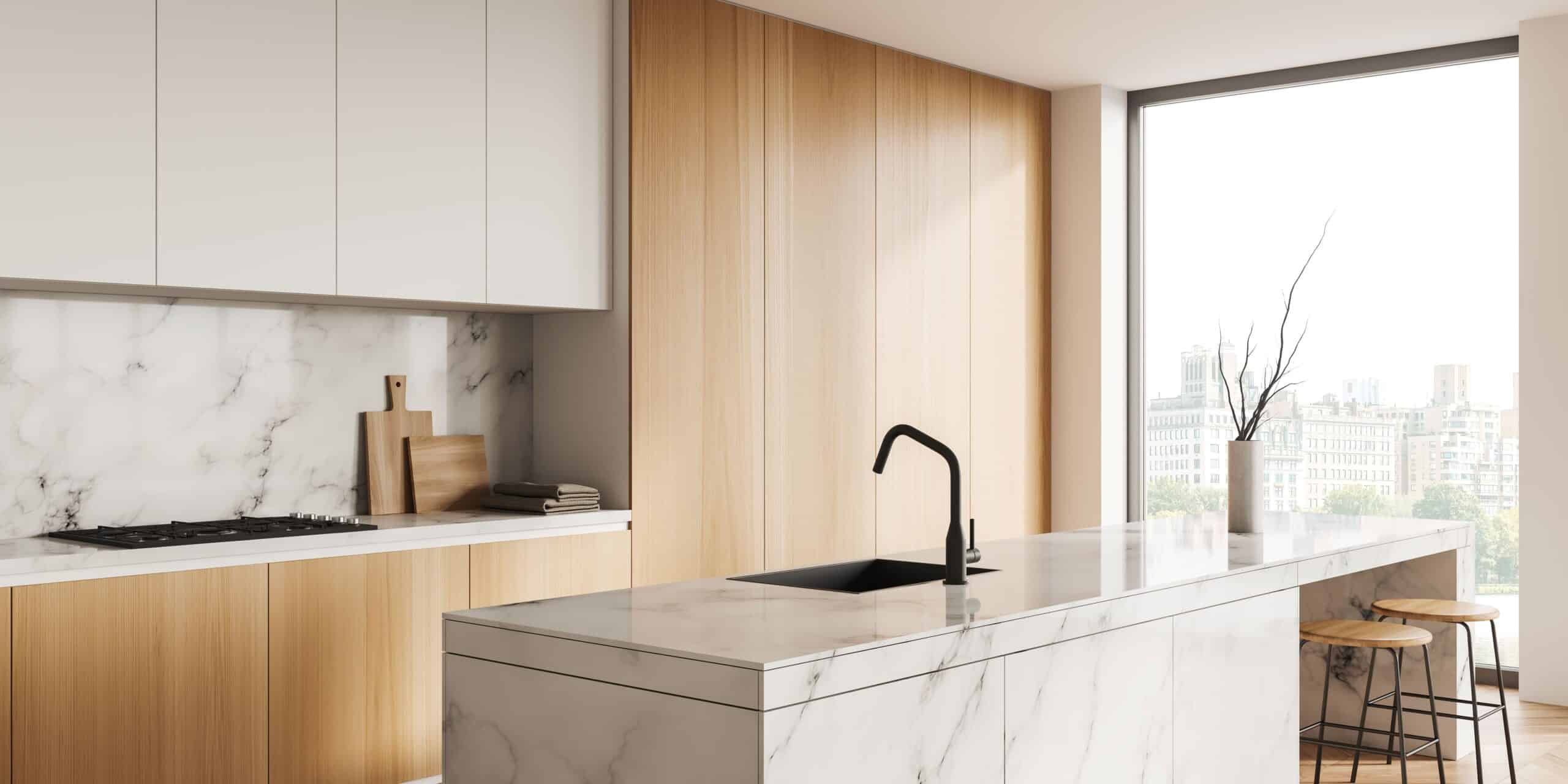Cost, functionality and aesthetics should all weigh in when you select your sink material. After all, it’s one of the most used fixtures of any home. Learn the pros and cons for some of the most common kitchen sink materials.
Stainless steel
This is the most popular material for kitchen sinks and for a good reason. Stainless steel sinks are resistant to heat and stains and are available in a variety of types, styles and sizes. Go for a brushed or satin finish rather than a mirror finish as water marks and scratches will be less noticeable.
Copper
A charming metallic alternative to classic stainless steel is copper. Copper sinks also happen to be rust-resistant and antimicrobial, making them a great choice for the kitchen. Be sure to choose one that is at least 99% pure copper and avoid harsh chemicals with your copper sink.
Composite granite
Composite granite sinks are good looking, durable and don’t show water spots or scratches the way stainless steel sinks do. Although these sinks are durable, they can crack if mishandled. Always inspect your composite sink thoroughly before installation to make sure it didn’t suffer trauma during transit.
Natural stone
If you are putting in natural stone countertops, think about installing an integrated sink to match. Some stones are susceptible to stains, though, so get a sample of the stone you are considering and test it out to make sure you are happy with how it stands up to staining.
Quartz
Similarly, if you are installing quartz countertops you can opt to have a matching sink fabricated and installed for a clean, seamless look. One thing to keep in mind with quartz, however, is that the darker, more solid-colored quartzes tend to show scratches and dings.
Want to book in a site visit, ask a question about our building process or talk through your project? Call SE Building Solutions today on 0415 772 983

